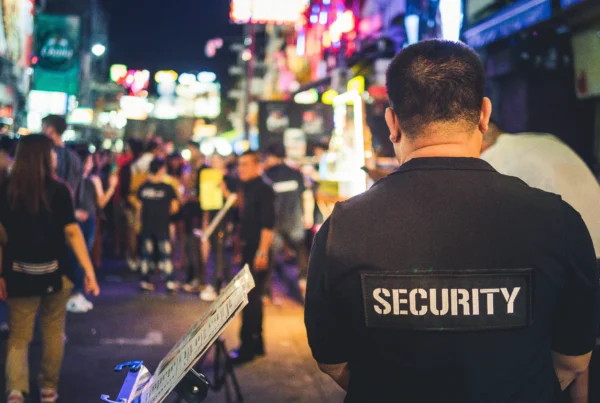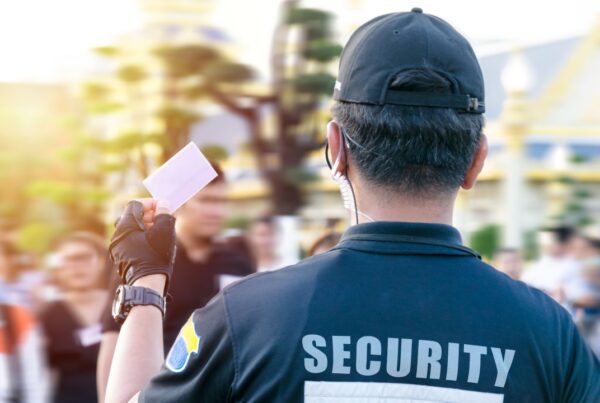It’s your job to keep a Fortune 500 CEO or an A-list celebrity safe when they come to your corporate gala or walk the red carpet at your charity auction. But VIP event security isn’t just about stopping things from happening. It’s also about making an invisible shield that protects without getting in the way, keeps things safe without being too strict, and protects without making it hard to connect with others.
The hard part is finding the right balance: how do you keep your VIP guests safe while also making sure they feel comfortable, valued, and free to enjoy the experience? This fragile balance is what makes the difference between amateur event planning and world-class execution.
Why VIP Event Security Demands Special Attention
VIP guests are at risk in ways that regular guests are not. Because they are so famous, they are targets for everything from pushy photographers and overzealous fans to more serious security threats.
In addition to worrying about their physical safety, VIPs also have to deal with privacy violations, damage to their reputations from unwanted interactions, and the stress of being constantly watched by the public. Because of these things, security measures for VIP guests need to deal with both real threats and mental comfort.
The stakes are very high. A security breach involving a VIP guest can ruin an event’s reputation, make people legally responsible, and end careers. On the other hand, smooth VIP security makes your event more prestigious and ensures that these important guests will come back and tell others about it.
Your Event Security is Just One Click Away
The Foundation: Risk Assessment and Planning
Good event security starts weeks before the first guest shows up. A full risk assessment looks at all parts of the event, including the weaknesses of the venue and possible sources of threats. This process should look at the specific profiles of the VIPs who are coming, their individual security needs, and any threats they might already know about.
Collecting information is very important here. Security teams work with the police, look through social media for possible threats, and look at recent events that are similar to or involve the same VIP guests. This information is what makes up the whole security plan.
The venue assessment looks at a lot of different things, like perimeter security, access points, sight lines, emergency exits, and safe areas for VIPs to go if they need to. Security consultants often use 3D modelling software to find weak spots and figure out the best places to put security staff and equipment.
Discreet Protection: The Invisible Shield
The best VIP security is the kind that you can’t see. When security measures are obvious or get in the way, they make the event less fun, which is the opposite of what you want. The goal is to make VIP guests feel completely safe without having to remind them all the time why security is needed.
Plainclothes security guards fit right in with the event. These professionals have received special training to blend in with regular attendees while staying alert and able to respond quickly. They carefully place themselves around the venue to create overlapping zones of protection for VIP guests.
This secretive approach is backed up by advanced surveillance technology. Modern security systems use facial recognition software, behavioural analysis algorithms, and wireless communication networks to help security personnel keep an eye on possible threats and plan responses without having to show a lot of force.
Access Control: The Art of Selective Permeability
Access management that goes beyond just checking names on a list is needed to keep VIP guests safe from people who shouldn’t be near them. Multi-layered access control makes security circles that get smaller and smaller as they get closer to the VIPs.
The outer layer could include general event security, checking invitations, and doing basic screenings. The next step is to do a more thorough background check on anyone who will be in close contact with VIP guests, like event staff, photographers, and catering staff. The innermost layer only lets in people who really need to be there and have been thoroughly checked out.
Biometric verification is now used by digital access management systems, which makes it almost impossible for people who don’t have permission to get in with stolen or fake credentials. These systems also keep track of who accessed what areas and when, making detailed audit trails.
Think about how big film festivals let VIPs in. At each checkpoint, they check people’s identities in private, use colour-coded wristbands, and digital badges with embedded chips. VIP guests get special escort services that help them get to their destinations quickly and safely by guiding them through secure paths that avoid crowds.
Technology Integration: Smart Event Security
Modern VIP security depends a lot on advanced technology that works behind the scenes. Real-time communication systems let security teams share information right away, so they can respond to new situations without causing any visible problems.
There have been big changes in threat detection technology. Advanced video analytics can spot people who don’t belong in restricted areas, strange crowd formations, or patterns of behaviour that seem suspicious. These systems let security staff know about possible problems before they get worse, so they can respond proactively instead of reactively.
VIP guests can get help right away if they need it thanks to GPS tracking and panic buttons. These devices are often hidden in jewellery, watches, or other accessories, which keeps them secret while still giving you quick access to emergency services.
One new and exciting thing is using AI to predict and stop security problems before they happen. These systems look at past data, current threat intelligence, and the state of events in real time to find possible risks before they happen. This technology lets security teams deal with problems that haven’t even happened yet when it’s used correctly.
Coordinating with Local Authorities
Professional VIP event security never works alone. Working together with local police, fire departments, and other government agencies makes a full security network that goes well beyond the event site.
During the planning stage, security consultants start working together by telling local authorities about the event, the expected number of attendees, and any possible risks. Law enforcement often sends extra patrols to nearby areas to make sure that any outside threats are found and dealt with before they get to the event.
Emergency services get detailed maps of the venue, information about VIP guests, and special rules for how to handle situations involving famous people. This preparation makes sure that response teams can act quickly and correctly in case of an emergency.
International events need even more coordination, which often includes federal agencies and diplomatic security services. These partnerships make sure that VIP guests are always safe, from the time they arrive in the country until the time they leave.
Balancing Security with Guest Experience
The hardest part of VIP event security is making sure everyone has a good time while also making sure everyone is safe. When security is too strict, an event can feel more like a police checkpoint than a party, which defeats the purpose of having VIP guests.
Successful security teams spend a lot of time learning about hospitality and how to deal with guests. They know that their job is more than just keeping people safe; they also have to make sure that VIP guests feel welcome, valued, and at ease. It could mean quietly managing how people interact with each other, giving VIP guests private spaces to talk without being overheard, or making sure they never have to wait in line.
The most important thing is to see needs before they turn into problems. If a VIP guest seems to be getting too much attention, security can gently move people away from the guest or take them to a quieter area. If paparazzi get too pushy, you can deal with them without making a scene that gets even more attention.
Crisis Management and Emergency Response
Even with the best planning, things can go wrong. How quickly and professionally the security team reacts can make the difference between a small problem and a big crisis. VIP guests want quick, clear action that fixes problems without drawing too much attention.
Emergency response plans for VIP events include detailed evacuation plans that put high-profile guests first while making sure everyone else is safe. These plans cover a wide range of emergencies, from medical problems and fire alarms to more serious security threats.
There are strict rules for how to talk to people during emergencies that are meant to keep people from panicking and make sure everyone gets the information they need. Security staff often speak directly to VIP guests instead of making general announcements. It lets them give more personalised help and comfort.
Training scenarios help security teams get ready for different kinds of emergencies. A lot of the time, these exercises involve pretending to deal with several types of crises, like dealing with angry people or organising evacuations. The goal is to make sure that everyone on the team can respond quickly and professionally when things get tough.
Event Security – The Investment in Excellence
Premium VIP security costs a lot of money, but the benefits go far beyond stopping problems. When VIP guests feel safe and at ease at your event, they will tell others about your organisation. They are more likely to go to future events, tell their coworkers about them, and say good things about their experience.
The benefits to your reputation are huge. In a time when social media can spread news about any event in seconds, it’s important to have perfect security. One security breach can cause bad press that lasts for years, but consistently good security builds a reputation for being professional and dependable.
Final Words
When guests don’t have to worry about their safety, VIP event security works. The best protection works without being seen, making it possible for famous people to relax, network, and have fun without worrying about their safety or privacy.
To offer this level of service, a lot of money must be spent on planning, technology, and staff. But the other option, a security breach involving a VIP guest, can be much worse for your reputation, legal liability, and future business opportunities.
The best VIP event security companies know that safety and hospitality go hand in hand. When done right, security measures make guests feel special and cared for, which improves their experience. This method turns security from a necessary evil into a competitive edge that makes your events stand out from the rest.Do you want to make your event secure? Just connect with us for further details.











